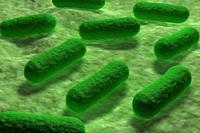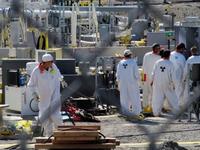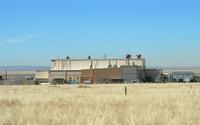-
RFI for cybersecurity framework for critical infrastructure
In his 12 February 2013 Executive Order, President Obama called for the development of a Cybersecurity Framework to reduce cyber risks to critical infrastructure such as power plants and financial, transportation, and communications systems. The National Institute of Standards and Technology (NIST) the other day issued a Request for Information (RFI) in the Federal Register as its first step in the process to developing that framework.
-
-
No gloom-and-doom: science does not back global tipping point view
A group of international ecological scientists have rejected a doomsday-like scenario of sudden, irreversible change to the Earth’s ecology. The scientists argue that global-scale ecological tipping points are unlikely and that ecological change over large areas seem to follow a more gradual, smooth pattern.
-
-
New power engineering curriculum to help U.S. security, economy
Nearly 40 percent of all energy consumed in the United States is first converted to electricity, with that figure expected to rise to as much as 70 percent in the future. Increasing the pipeline of graduates in electric power and energy has implications for both the country’s place in the global market and national defense. The more expertise there is at home, the less the United States will have to import talent and energy resources from overseas. An Office of Naval Research (ONR)-supported project is bringing sweeping changes to electric power and energy education at universities throughout the country, establishing first-time programs at some schools and bringing new courses and labs to others.
-
-
Modified bacteria turn bio waste into fat for fuel

“Green” chemistry developed at Rice University is at the center of a new government effort to turn plant waste into fatty acids and then into fuel. A new project aims to develop a new generation of renewable energy and bio-based products from switchgrass and forestry residues and from a new hybrid of sorghum.
-
-
Report details history, earlier versions of Stuxnet
In 2010, Symantec reported on a new and highly sophisticated worm called Stuxnet. This worm became known as the first computer software threat which was used as a cyber-weapon. In a new report, Symantec says that clues in the code pointed to other versions of the worm which could potentially perform different actions leaving an open question about Stuxnet and how it came to be.
-
-
Water security experts at U Arizona annual conference
How can Arizona secure a safe, sustainable water supply for its current and future residents? The University of Arizona Water Resources Research Center will take on this complex issue at its annual conference on 5 March.
-
-
Much less additional land available for biofuel production
Amid efforts to expand production of biofuels, scientists are reporting new estimates that downgrade the amount of additional land available for growing fuel crops by almost 80 percent.
-
-
Radioactive leaks at Washington’s Hanford nuclear reservation

Earlier this month, Washington Governor Jay Inslee announced that a radioactive waste tank at one of the nation’s most contaminated nuclear sites is leaking, bringing more bad news to Washington’s Hanford nuclear reservation. The 177 tanks at the plant, which hold millions of gallons of highly radioactive waste from plutonium production, are way past their intended 20-year life span.
-
-
Better management of water resources in Canada
Canadian agriculture is faced with great opportunities, but also challenged by water — related risks and uncertainties. An expert panel convened by the Council of Canadian Academies has found that water and land resources in Canada can be more sustainably managed by developing forward — thinking policies and effective land and water management strategies, adopting effective governance mechanisms, and harnessing technological advancements.
-
-
Sandia Labs refurbishes nuclear security infrastructure

Sandia National Laboratories has completed $199 million in facilities construction and repair as part of an 11-year national effort to revitalize the physical infrastructure of nuclear security enterprise sites. The work is part of a program established in 2001 to reduce a long-standing backlog of deferred maintenance at the National Nuclear Security Administration’s (NNSA) eight sites, including Sandia.
-
-
Weather extremes caused by giant waves trapped in the atmosphere
The world has suffered from severe regional weather extremes in recent years, such as the heat wave in the United States in 2011 or the one in Russia 2010, coinciding with the unprecedented Pakistan flood. Behind these devastating individual events there is a common physical cause, propose scientists in a new study. The study suggests that man-made climate change repeatedly disturbs the patterns of atmospheric flow around the globe’s Northern hemisphere through a subtle resonance mechanism.
-
-
Wind power’s contribution has been overestimated

People have often thought that there is no upper bound for wind power — that it is one of the most scalable power sources. After all, gusts and breezes do not seem likely to “run out” on a global scale in the way oil wells might run dry. Yet the latest research in mesoscale atmospheric modeling suggests that the generating capacity of large-scale wind farms has been overestimated.
-
-
Georgia wants to redraw its northern border to tap Tennessee River water
Lawmakers in Georgia are renewing efforts to claim Georgia’s right to tap into the Tennessee River’s water supply. The lawmakers hope to achieve this by raising questions about the exact demarcation of the border between the two states.
-
-
Russian fireball largest ever detected by nuke monitoring organization
Infrasound has been used as part of the Comprehensive Nuclear Test Ban Treaty Organization’s (CTBTO) monitoring tools to detect atomic blasts since April 2001 when the first station came online in Germany. Infrasonic waves from the meteor that broke up over Russia’s Ural Mountains last week were the largest ever recorded by the CTBTO’s International Monitoring System.
-
-
Climate change as a national security issue
In a new report, Harvard researcher is pointing toward a new reason to worry about the effects of climate change — national security. During the next decade, the report concludes, climate change could have wide-reaching effects on everything from food, water, and energy supplies to critical infrastructure and economic security. “The imminent increase in extreme events will affect water availability, energy use, food distribution, and critical infrastructure — all elements of both domestic and international security,” the report’s author says.
-
More headlines
The long view
Water Wars: A Historic Agreement Between Mexico and US Is Ramping Up Border Tension
As climate change drives rising temperatures and changes in rainfall, Mexico and the US are in the middle of a conflict over water, putting an additional strain on their relationship. Partly due to constant droughts, Mexico has struggled to maintain its water deliveries for much of the last 25 years, deliveries to which it is obligated by a 1944 water-sharing agreement between the two countries.
Trump Is Fast-Tracking New Coal Mines — Even When They Don’t Make Economic Sense
In Appalachian Tennessee, mines shut down and couldn’t pay their debts. Now a new one is opening under the guise of an “energy emergency.”
Smaller Nuclear Reactors Spark Renewed Interest in a Once-Shunned Energy Source
In the past two years, half the states have taken action to promote nuclear power, from creating nuclear task forces to integrating nuclear into long-term energy plans.
Keeping the Lights on with Nuclear Waste: Radiochemistry Transforms Nuclear Waste into Strategic Materials
How UNLV radiochemistry is pioneering the future of energy in the Southwest by salvaging strategic materials from nuclear dumps –and making it safe.
Model Predicts Long-Term Effects of Nuclear Waste on Underground Disposal Systems
The simulations matched results from an underground lab experiment in Switzerland, suggesting modeling could be used to validate the safety of nuclear disposal sites.
